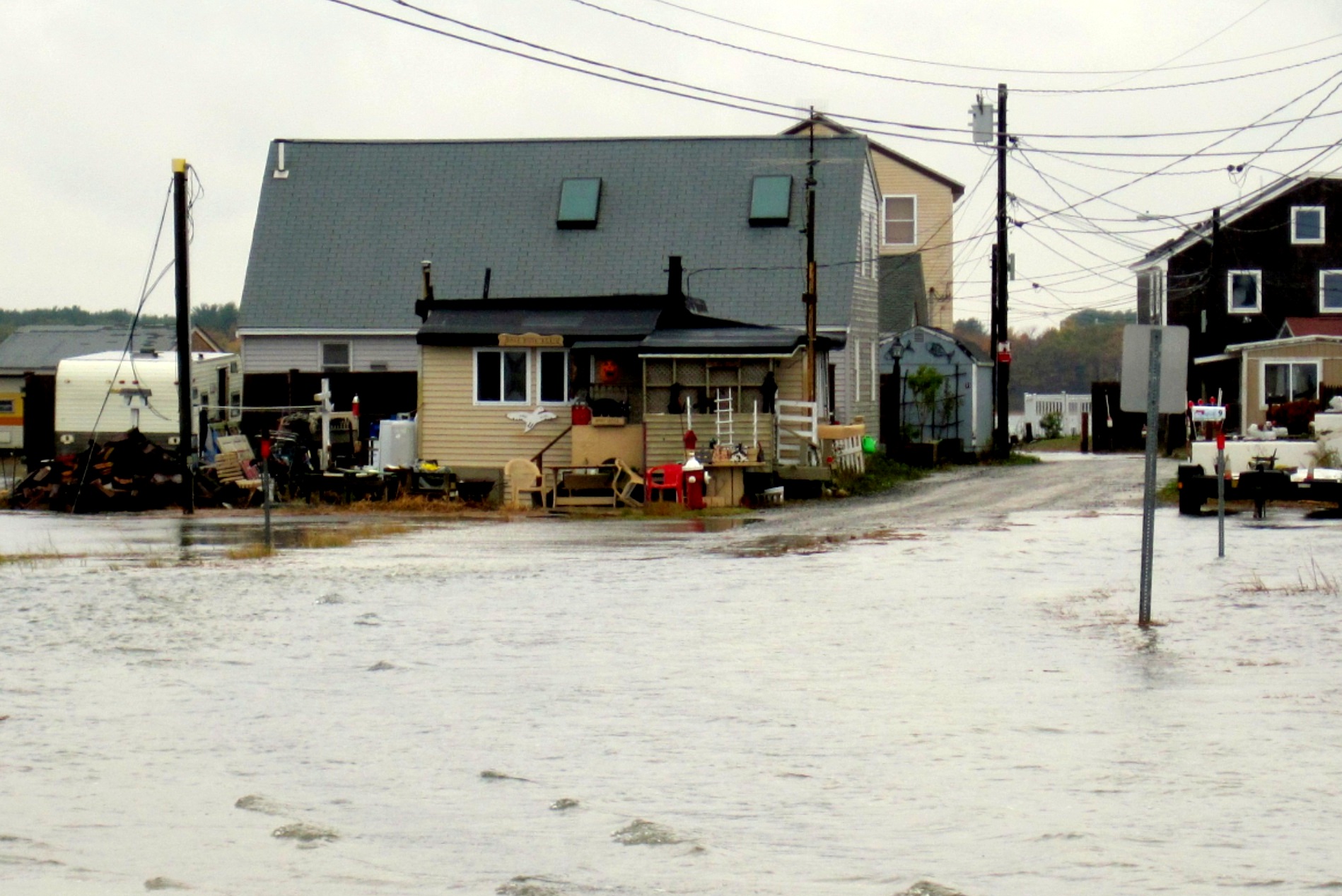Climate Change

Changes in New Hampshire’s climate are well documented in local records of sea level, growing seasons, range of flora and fauna, precipitation and temperature. Similar to national trends and climate model projections, the state has experienced more extreme weather events including floods, drought and rising tides.
Some degree of future impact will be influenced by changes to the atmosphere and warming of land, atmosphere and oceans already in progress. Longer term impacts will reflect decisions made today that influence how climate may change further into the future. Such decisions include energy choices such as fossil based versus renewable sources, land use and environmental protection, and transportation systems.
New Hampshire and its municipalities have many opportunities and time to prepare and adapt to a changing climate. This effort will require understanding of recent climate projections and assessments, applying technology and data to solve problems, and learning from other states and communities that have successfully implemented effective strategies and solutions.
Refer to the Climate Change Chapter of RPC’s Regional Master Plan for more information about climate change impacts on the region.
Several statewide and regional efforts have advanced understanding of climate change in New Hampshire, providing guidance, resources, science and strategies for adaptation:
- NH Multi-Hazard Mitigation Plan (2018 Update)
- NH Climate Action Plan (2009)
- NH Coastal Risks and Hazards Commission (RSA 483E)
- NH Coastal Adaptation Workgroup
Additional resources are available on the State and Regional Efforts page.
RPC Work in the Region
The RPC has lead and participated in many efforts to raise awareness and develop technical tools and guidance about climate change in the region. Efforts have covered a wide geography, reaching many municipalities and stakeholders interested in the issues surrounding climate change both present and future. Following is a brief summary of the Commissions efforts in the region.
- Member of the New Hampshire Coastal Adaptation Workgroup
- Member of the state’s Coastal Risks and Hazards Commission
- Outreach and engagement projects through grants from the NH Coastal Program
- Tides to Storms Coastal Vulnerability Assessment (2015)
- City of Portsmouth Coastal Resilience Initiative project (2013)
- Pilot project funded by the NH Coastal Program Adaptation Strategies to Protect Areas of Increased Risk From Coastal Flooding Due to Climate Change in Seabrook (2009)
While these collective efforts demonstrate substantial interest and commitment to address climate change, further research, assessments and strategic planning will be needed to achieve a more climate resilient future for the region.
Challenges and Impacts
As a result of climate change both present and future, New Hampshire municipalities are and will continue to be confronted by land use, environmental and public health and safety concerns. Natural hazard management issues associated with climate change include extreme weather events, storm surge, flooding, erosion, and impacts to key natural resources, ecosystems and habitats. These issues are only intensified by recent increases in the frequency and intensity of extreme storm events and increases in annual average precipitation and the amount of rainfall associated with storm events. Increased flooding has the potential to place riverine floodplain and coastal populations at risk, threaten infrastructure, and ultimately disrupt or cause damage to homes, businesses, drinking water supplies, recreation areas, and public resources.. As experienced in recent decades, storm-related impacts to the “built environment” can be significant and will likely continue in high risk areas unless actions are taken to protect assets and investments and adapt to changing conditions. In addition, rising temperatures may result in increased impacts to public health including heat and respiratory related illness, and diseases transmitted by insects such as mosquitoes and ticks.
Coastal Communities
Coastal municipalities are confronted by a particularly challenging set of land use and hazard management concerns that include extreme weather events, storm surges, flooding, coastal erosion, and loss of key coastal habitats. These issues are exacerbated by changes in climate that result in an increase in the frequency and intensity of storms and an increasing rate of sea-level rise. These effects are compounded by growth and development, increased flooding from stormwater runoff, and continued development of coastal floodplains. Residential and commercial structures, infrastructure, roads, and bridges are more prone to flooding in coastal areas. Sea level rise may also reduce the effectiveness and integrity of existing seawalls, which have been designed for historically lower water levels.
Refer to the Climate Change Chapter of RPC’s Regional Master Plan and the Tides to Storms Coastal Vulnerability Assessment for more detailed information about coastal risks and vulnerability.

